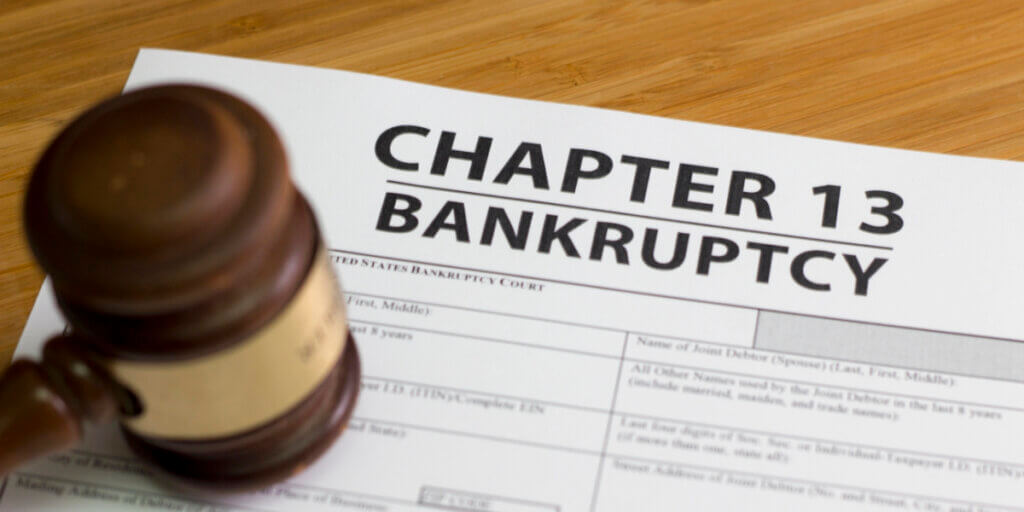Yes. Filing for Chapter 13 bankruptcy is one of the most powerful legal tools to immediately stop a foreclosure sale and provide a path for you to keep your home. The moment your Chapter 13 case is filed, an “automatic stay” takes effect, freezing the foreclosure process.
If you’re a homeowner facing the daunting prospect of foreclosure due to missed mortgage payments or overwhelming unsecured debt, understanding your options is crucial. Chapter 13 bankruptcy offers a “wage earner’s plan” that can help individuals with regular income restructure their debts and potentially save their home.
How Chapter 13 Bankruptcy Works in Simple Steps
Chapter 13 bankruptcy offers a “wage earner’s plan” that can help individuals with regular income restructure their debts and potentially save their home from foreclosure. It is a structured repayment plan with the following key features:
- A structured repayment plan: Chapter 13 is designed for individuals with a regular income to consolidate their debts.
- Consolidation of debts: It combines various debts, including secured debts (like mortgages and car loans) and unsecured debts (such as credit cards and medical bills), into a single repayment plan.
- Repayment period: The plan typically lasts three to five years.
- Trustee management: Under Chapter 13 of the Bankruptcy Code, a court-appointed trustee manages the plan, collecting monthly payments from the debtor and distributing them to creditors.
- Payment to creditors: Secured creditors are usually paid in full, while unsecured creditors may receive only a portion of what they are owed, sometimes with a lower interest rate.
- Long-term solution: The goal is to provide debtors with a long-term way to manage their finances and prevent foreclosure.
Does Filing for Chapter 13 Stop Foreclosure?

As mentioned, yes, filing Chapter 13 bankruptcy triggers an immediate “automatic stay” under bankruptcy law. This automatic stay halts most collection efforts and legal actions against you, including foreclosure proceedings and even a scheduled foreclosure sale. This provides immediate, temporary relief from collection efforts, giving you precious time to propose a repayment plan to the bankruptcy court and begin making regular mortgage payments.
To effectively stop a foreclosure sale, you must file a bankruptcy petition promptly and propose a repayment plan that includes both your current mortgage payments and a plan to address your mortgage arrears (past due payments). Adherence to this repayment plan is critical to avoid dismissal of your bankruptcy case.
Bankruptcy Stop Foreclosure Process
The process of using Chapter 13 to stop foreclosure involves:
- Filing a bankruptcy petition: Submitting a petition to the bankruptcy court.
- Automatic stay: This goes into effect immediately, halting all foreclosure actions.
- Proposing a repayment plan: The debtor, often with the help of an attorney, creates a plan to pay off secured and unsecured debts and catch up on mortgage arrears.
- Confirmation hearing: A judge reviews and, if approved, confirms the plan, making it legally binding.
- Making payments: The debtor makes regular payments to the trustee.
- Other requirements: Debtors must also complete credit counseling and file tax returns.
Debt Relief and Interest Rate
Chapter 13 bankruptcy offers significant debt relief by consolidating various debts into a single, manageable repayment plan. This plan can potentially lead to a reduced payment amount for unsecured debts, and in some cases, may even eliminate interest on certain types of debt.
You might also be eligible for a mortgage modification through this process, which could reduce your monthly mortgage payment and interest rate, making your home loan more affordable. Understanding these debt relief options is crucial for making informed decisions about your financial future.
Delay Foreclosure with Chapter 13
Chapter 13 bankruptcy can effectively delay foreclosure for the entire duration of your repayment plan, typically three to five years. During this period, you have the opportunity to catch up on any missed mortgage payments and continue making regular mortgage payments, thus preventing ongoing collection efforts.
Successfully delaying foreclosure with Chapter 13 relies on making timely payments and consistently complying with the terms of your repayment plan. Working closely with a bankruptcy attorney is essential to fully grasp the requirements and maximize the benefits of delaying foreclosure with Chapter 13.
The Commitment: Pros and Cons of Chapter 13
Deciding on Chapter 13 bankruptcy involves a significant commitment. It’s important to weigh the advantages and disadvantages carefully.
Pros
- You Get to Keep Your Home: This is the primary benefit for many homeowners facing foreclosure.
- Debt Management: It can help you manage and potentially reduce other debts, such as credit card debt or car loans.
- Automatic Stay: Provides immediate, temporary relief from foreclosure actions and other creditor collection efforts.
- Structured Repayment: Offers a clear path to get back on track with your finances.
Cons
- Long-Term Commitment: It’s a strict 3-5 year repayment plan.
- Credit Impact: A bankruptcy filing will remain on your credit history for 7+ years, potentially affecting your ability to get future loans or credit.
- Fees: You will incur attorney and trustee fees.
- Risk of Dismissal: If you miss payments on your repayment plan, the mortgage company or mortgage lender can request the bankruptcy judge to lift the automatic stay, allowing them to restart the foreclosure.
Chapter 13 vs. a Fast Cash Sale: A Side-by-Side Comparison
While Chapter 13 bankruptcy offers a path to save your home, it’s not the only option. For some, a fast cash sale of their property can provide a quicker, less complex solution, especially if their primary goal is to achieve a fresh start without the long-term commitment of bankruptcy.
Here’s a comparison to help you understand the key differences:
| Factor | Chapter 13 Bankruptcy | Fast Cash Sale (with iBuyHomes) |
|---|---|---|
| Primary Goal | Keep the house | Sell the house for a fresh start |
| Timeline | 3-5 year court-supervised repayment plan | Close in as little as 7-10 days |
| Credit Impact | Bankruptcy on record for 7 years | Avoids foreclosure & bankruptcy from being on record |
| Your Equity | Remains tied up in the house | You receive your remaining equity in cash |
| Complexity | High (Legal filings, court oversight, strict repayment plan) | Low (Simple real estate transaction) |
| Outcome | Stops foreclosure, keeps the house, and begins a long repayment process | Stops foreclosure, sells the house, and you walk away with cash |
Conclusion and Your Next Steps
Filing Chapter 13 bankruptcy can be a powerful tool to stop foreclosure and provide debt relief for individuals facing significant financial difficulties. However, it’s a serious commitment with long-term implications for your credit history and financial future.
By understanding the benefits and requirements of Chapter 13 bankruptcy, you can make informed decisions about your financial future and avoid foreclosure. If, after considering all your options, you believe a fast, certain sale is the right path to your fresh start, contact iBuyHomes today to get your no-obligation cash offer.



